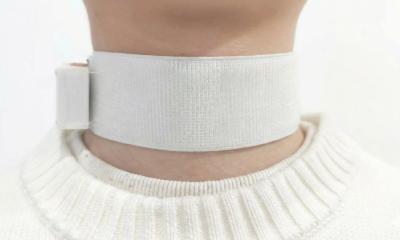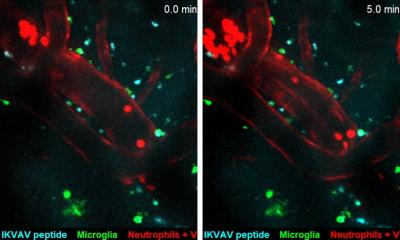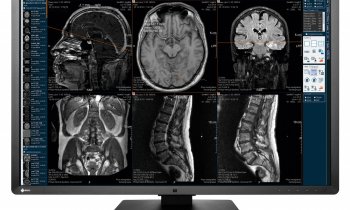Is there a link between stroke and Fabry disease?
A joint project of more than 30 European stroke units just started to examine a potential connection between Fabry disease and stroke in young patients. The results of the worldwide SIFAP (Stroke in Young Fabry Patients) study might give an explanation for some of the 25% of strokes with unknown origin in patients aged 18-55 years.

Stroke is a frequent problem in young people: About 15 % of all stroke patients are younger than 55 years, while the reason for the event remains unclear in every forth case.
A former study already suggested that about 5 % of those patients suffered a stroke with unknown background might have Fabry, an inherited metabolic disorder. Now the SIFAP study under the direction of Prof Dr Arndt Rolfs, vice-director of the Department of Neurology at the University of Rostock should confirm these results. “The study will not only provide reliable data on the link between Fabry disease and stroke, but will also help to improve the quality of life of Fabry patients”, Prof Dr Rolfs explains the aims of the project.
In the first phase of the study 5,000 young stroke patients will be examined for risk factors, clinical symptoms and possible triggers. The collected data hopefully will allow precise conclusions about the prevalence of Fabry disease in young patients. A second phase then examines the efficacy of prophylactic and therapeutic measures for stroke patients with Fabry disease. Results of phase one will be available in about 18 months.
Background Fabry disease
Fabry disease is an inherited genetic lysosomal storage disorder which cause an insufficient – respectively a lack – of production of alpha-galactosidase A, an enzyme which is essential for catabolizing glycosphinogolipids, especially globotriaosylceramide (Gb-3). In effect, Gb-3 accumulates in blood vessels, as well as in numerous tissues and organs, such as heart, kidney, and eyes. Males are predominantly affected, about 1 in 40,000 men is estimated to be Fabry positive. Recent studies even suggested that 1 in 3,900 males are affected.
Typical symptoms are:
- Pain in feet, hands, joints (acroparesthesia)
- Reduced sweating (hypohidrosis) and easy overheating
- Skin conditions, rashes (predominantly angiokeratomas)
- Cardiac complications (i.e. ventricular hypertrophy, coronary artery disease)
- Renal problems (impaired function, failure)
- Neurological abnormalities (i.e. headache, hemiparesis)
- Cerebrovascular problems (especially premature stroke)
- Gastroenterological problems (i.e. recurring diarrhea)
- Corneal and lenticular opacity (i.e. whorled corneal)
List of study participating centers
Austria
Graz: Fazekas, Franz, M.D., Prof.; Universitätsklinik für Neurologie Graz
Linz: Aichner, Franz Thaddäus, Prof. ;Dept. of Neurology, Wagner-Jauregg
Wien: Kristoferitsch, Wolfgang, M.D., Prof.; Dept. of Neurology, Sozialmedizinisches Zentrum Ost der Stadt Wien– Donauspital
Belgium
Antwerp: deDeyn, Peter Paul, M.D., Prof. ; Department of Neurology/Memory Clinic, Middelheim General Hospital
Leuven: Thijs, Vincent, M.D., Prof. ; UZ Gasthuisburg Hospital
Germany
Rostock: Rolfs, Arndt, M.D., Prof. ; Dept. of Neurology, University of Rostock
Ulm: Ludolph , Albert, M.D., Prof.; Dept. of Neurology, University of Ulm
Berlin: Villringer , Arno, M.D., Prof.; Dept. of Neurology, Charité Campus Benjamin Franklin
Greifswald: Kessler, Christof, M.D., Prof.; Dept. of Neurology, Ernst-Moritz-Arndt-Universität Greifswald
Lübeck: Kömpf, Detlef , M.D., Prof.; Dept. of Neurology, Universitätsklinikum Schlewig-Holsteinfax: +49-451-5002489,
München: Brandt, Thomas, M.D., Prof.; Dept. of Neurology, Klinikum München – Großhadern
Heidelberg: Hacke, Werner, M.D., Prof. ; Dept. of Neurology, Heidelberg University
Düsseldorf: Hartung, Hans-Peter, M.D., Prof.; Dept. of Neurology, Heinrich-Heine-University Düsseldorf,
Giessen: Kaps, Manfred, M.D., Prof. ; Dept. of Neurology, University of Giessen
Münster: Ringelstein, Erich Bernd, M.D., Prof. Dept. of Neurology, Universitätsklinikum Münster
Kiel: Deuschl, Günther , M.D., Prof.; Dept. of Neurology, Universitätsklinikum Schleswig-Holstein Campus Kiel
Italy
Rom: Lenzi, Gianluigi, M.D., Prof.; Dipartimento di Scienze Neurotiche, Università degli Studi La Sapienza
Padua: Burlina, Alessandro, M.D., Prof. Dipartimento di Neuroscienze, Azienda Ospedaliera-Università di Padova
Spain
Badalona: Dávalos, Antonio, M.D., Prof.; Jefe de Servicio de Neurología, Hospital Universitari Germans Trias i Pujol
Madrid: Diaz Otero, Fernando , M.D., Prof.; Servicio de Neurologia, Hospital Universitario Gregorio Marañon
Portugal
Lisboa: Machado Candido, Joaquim, MD ; Neurology Department, Centro Hospitalar de Lisboa
United Kingdom
Oxford: Rothwell, Peter M, M.D., Prof.; Stroke Prevention Research Unit, University Department of Clinical Neurology
Glasgow: Muir, Keith, MBChB, FRCP, MD, MSc, Prof.; Division of Clinical Neurosciences, University of Glasgow
France
Lyon: Derex, Laurent, M.D.; Hopital Neurologique de Lyon, Hospices Civils de Lyon
Poland
Warsaw: Czlonkowska, Anna, MD, Prof.; Department of Neurology, Institute of Psychiatry and Neurology
Denmark
Kopenhagen: Boysen, Gudrun, MD, Prof.; Department of Neurology, University of Kopenhagen
Finland
Kuopio: Pirttilä, Tuula, MD, Prof. ; Department of Neurology, Kuopio University Hospital
Croatia
Zagreb: Demarin, Vida, MD., Prof. ; Department of Neurology, University Hospital “Sestre Milosrdnice”
Israel
Tel Aviv: Bornstein, Natan, M.D, Prof. ; Department of Neurology, Sourasky Medical Center
Tel Hashomer: Tanne, David, M.D.; Department of Neurology, Sheba Medical Center
20.02.2007
More on the subject:











